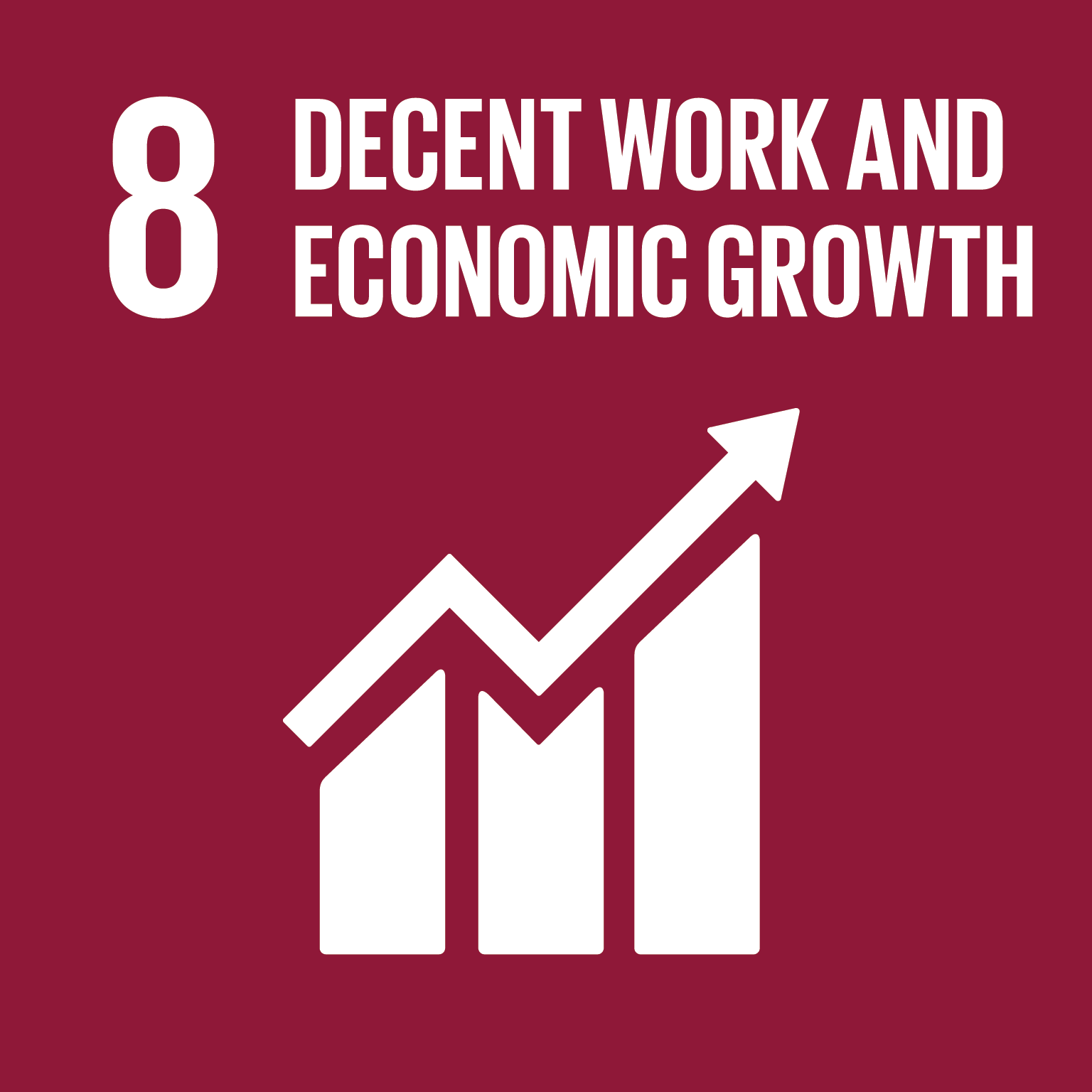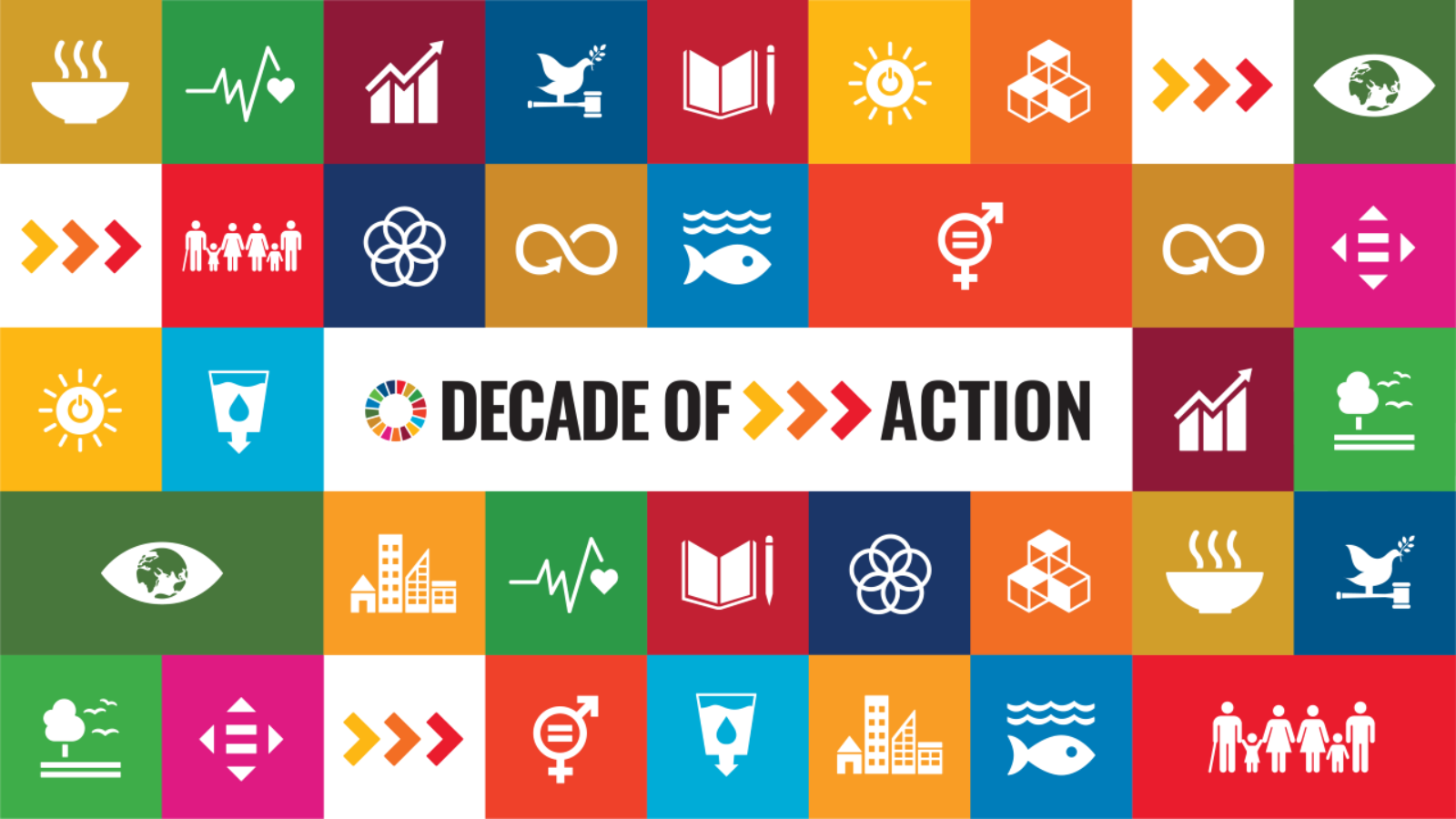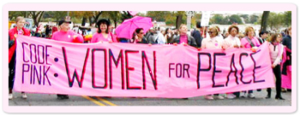August SDG #8: Decent Work and Economic Growth.

This month’s Sustainable Development Goal the Local Peace Economy is working on is Sustained and inclusive economic growth can drive progress, create decent jobs for and improve living standards.
Roughly half of the world’s population, men and women who are working, but they are not earning enough to lift themselves and their families out of poverty. This is not just poor countries. “We should not forget that the majority of poor people do not live in the poorest countries; they live in Middle Income Countries. If they don’t receive the support they need, the development prospects of heavily indebted Middle-Income Countries will be seriously compromised,” said UN Secretary-General António Guterres at a recent High Level Political Forum on Sustainable Development (HLPF). Countries met in the General Assembly Hall to examine how recovery policies can reverse the pandemic’s negative impacts on the common goal of creating a more equitable future for all people and the planet.
The answer is easy to a more equitable future for all people and the planet: business need to profit share and become employee owned. There were records profits for corporations during the pandemic, thanks to government money, yet workers share of the profits wasn’t enough to cover the rising costs of their bills. A report from the Brookings Institute found that while top retailers’ profits have “soared” during the coronavirus pandemic, pay for frontline workers has barely budged.
Brookings analyzed the earnings and compensation of frontline employees at 13 of the biggest retailers in the U.S. between March 13 and November 19 of this year, including Albertsons, Amazon, Best Buy, Costco, CVS Health, Dollar General, Home Depot, Kroger, Target and Walmart. While the companies in the report made an average of 39% more in profit this year compared to 2019, pay for their essential workers increased by just 10% on average, or $1.11 per hour, over the course of the pandemic.
Some of the least generous companies had the largest profits: Amazon and Walmart increased profits by of 53% and 45%, respectively, compared to last year. Their workers received an extra $0.95 per hour (Amazon) and $0.63 per hour (Walmart) since March. That is a 6% increase.
Kroger, the country’s largest supermarket operator, company’s profits increased by 90% from 2019 to 2020 and dividends increased by 13% making the 14th consecutive year of dividend increase. In addition, the company authorized a $1 billion share buyback program. While workers did not get similar pay increases and pays some of the lowest wages in the industry, according to Brookings, offering $10 per hour on average.
These companies’ profit only benefit shareholders and are not shared with workers who put their lives at risks, during covid, to make the company those high profits. The capitalist system is a greedy financial system that profits only a few and has exploited working people and the planet for millennia, first by kings and emperors and in today’s time single party countries like China/Russia use the capitalist system to control the many to benefit the few, as well as military dictatorship: Egypt/Myanmar and Kingdoms still existing today: Saudi Arabia/Brunei. In the US over the years laws were written and supported today by rich white businessmen to maintain control of the financial system by the 1% and insure that corporate rights are value more than people and the environment.
For decades, Systemic 1% Capitalism, has kept U.S. wages flat and they have failed to keep pace with the rising costs of living. What many perceive as essential ingredients for a successful middleclass American life: to make enough money to support a home and a family, put money in the bank for retirement, health care and good education for their kids or themselves is out of reach. Because for many young people student loans are a yoke around their necks the minute they graduate and keep them from reaching the American Dream. Debt and no savings keep many parents from retiring. Medical bills can set people back for years. A home mortgage and utilities can bite off half of a monthly income, especially in big cities. This systemic 1% capitalism has turned the middle class into the working poor.
Democracy is the only way that laws can be changed so people and the environment are valued more than the vested interests of a few corporations, dictators or kings. It will be a difficult democratic struggle to change from the capitalism of the few to democratic capitalism of the many. For the many to benefit all countries need to be democratic. As of the end of 2017, 96 out of 167 countries with populations of at least 500,000 (57%) were democracies of some kind, and only 21 (13%) were autocracies. Nearly four dozen other countries – 46, or 28% – exhibited elements of both democracy and autocracy. Broadly speaking, the share of democracies among the world’s governments has been on an upward trend since the mid-1970s, and now sits just shy of its post-World War II record (58% in 2016).
Around the world people want to be free and many countries of had democratic revolutions only to be suppressed by men using force to maintain control for the 1%: Russia, China and Egypt to mention just a few. All democracies need to support democratic struggles and each other in defending democracy against capitalism. The time of dictators, kings and vested interests of a few corporations has passed. It is time for global democracy where everyone is free, companies are employee owned, health care and education is free. It is and will be a difficult democratic struggle to change from the capitalism of the few to democratic capitalism of the many: a global middleclass that is enjoying life not struggling to live as the working poor.
At the HLPF conference The Secretary-General called for a New Global Deal so that developing countries can have a fair chance at building their own futures, and for reforming the global financial system to one that “works for the vulnerable, not just the powerful.” That New Global Deal begins with profit sharing and employee ownership.
The good news in democracies can do it. In countries where people are free to invest and work, speak and vote, new ideas of how to live on the planet have emerged and realization of the need for developing a new system of energy and finance that is sustainable for both humans and all life on our planet has created, through global democracy, a framework for building a better future where no one is left behind: The 2030 Agenda for Sustainable Development.
So, join the Local Peace Economy and work for SDG# 8 Decent Work and Economic Growth.
The Local Peace Economy joins the United Nations in its call for a Decade of Action to transform the world by 2030. The 2030 Agenda for 17 Sustainable Development goals, adopted by all United Nations Member States in 2015, provides a shared blueprint for peace and prosperity for people and the planet, now and into the future. The spirit of human endeavor has demonstrated our shared ability to deliver the extraordinary. The Global Goals are our best hope-for people, for planet, for prosperity, for peace and for partnerships.
The Local Peace Economy calls on everyone everywhere to join us and the UN and pledge: “We are resolved to a Decade of Action to free the human race from the tyranny of poverty and want and to heal and secure our planet. We are determined to take the bold and transformative steps which are necessary. As we embark on this collective journey, we pledge that no one will be left behind.”

Please join us as we pledge to work urgently to shift the world onto a sustainable and resilient path of peace, that leaves no one behind.
To find out more about Goal #8 and the other Sustainable Development Goals, visit: http://www.un.org/sustainabledevelopment








